Roger W. Werne
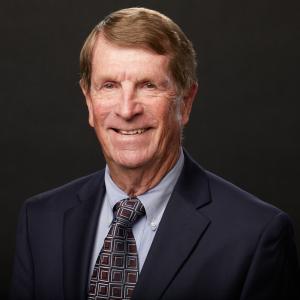
ROGER WERNE is a Senior Advisor for the Innovation and Partnerships Office (IPO). Dr. Werne has broad experience in the commercialization of technology developed within the Lawrence Livermore National Laboratory (LLNL). He launched and led the laboratory’s Industrial Partnering program in the late 1980’s while an Associate Director for Engineering. In 1995, he left LLNL and co-founded ITI Medical Technologies, a medical device company that developed unique surgical instruments for the field of Magnetic Resonance Image (MRI) guided surgery, a new minimally invasive surgical paradigm. The company patented, developed, and had FDA approval of a unique line of electrosurgical instruments which are still available in the medical marketplace. Roger returned to LLNL in 1999 as Chief Engineer for the NAI/Homeland Security Directorate tasked with countering the proliferation and use of weapons of mass destruction (WMD) against the United States. From 1999 to 2005, Dr. Werne was on the external Division Review Committee for the Engineering Sciences and Application Division at Los Alamos National Laboratory. In 2007, he joined the Innovation and Partnerships Office as Deputy Director, overseeing the licensing of laboratory developed intellectual property to the private sector and Cooperative Research and Development Agreements (CRADAs) with industry. He is a member of the Keiretsu forum, Angel Investment group, the Scientific Advisory Committee for the Society for Brain Mapping and Therapeutics, and the Innovation Advisory Committee at San Jose State University. Dr. Werne received his Ph.D. in Structures and Solid Mechanics from the University of California at Berkeley.
Ashraf Mounir Elsayegh
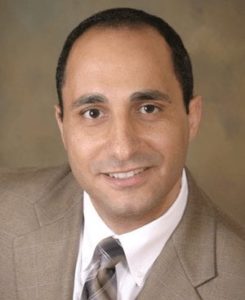
Dr. Elsayegh graduated from the Ross University School of Medicine in 1998. He works in Los Angeles, CA and 3 other locations and specializes in Critical Care Medicine, Critical Care Respiratory Therapy, Pulmonology and Sleep Medicine.
Seung-Schik Yoo
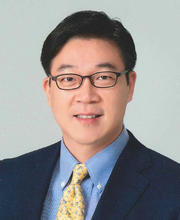
Seung-Schik is an associate professor of Radiology at Harvard Medical School, and is a director of Neuromodulation and Tissue Engineering Laboratory (NTEL), Brigham and Women’s Hospital. He also serves as a faculty member of Mind Brain Behavior at Harvard University. He has done early pioneering works in developing real-time functional magnetic resonance imaging that are used to interpret the human mind, and applied the technology to interface the brain function with machines and computers. Later, he developed a new mode of non-invasive brain stimulation modality which utilizes the focused ultrasound waves to control regional neural functions, including the activity of the brain. He is primarily interested in advancing the technique for various neurotherapeutics, but also likes to seek out new ways to link thought/brain processes between individuals. Seung-Schik also developed a three-dimensional bioprinter that can ‘print out’ artificial brain tissues and organoids for potential applications in neural computers and medical applications.
Keyne Johnson

Dr. Johnson is a board certified pediatric neurosurgeon who received her training in neurosurgery at Duke University Medical Center in Durham, NC. She completed further training with a pediatric neurosurgery fellowship at Texas Children’s Hospital in Houston, TX. Since then, she has developed an outstanding expertise in epilepsy, brain tumor removal, complex spine surgery, minimally invasive spine and brain surgery as well as endoscopy. Since 2008, Dr. Johnson has been based in Orlando, bringing a host of novel techniques to Central Florida. She has treated a myriad of diseases including cervical spine instability, scoliosis and Moya Moya disease. She is a fellow of the American Association of Neurological Surgeons and Assistant Professor at the University of Central Florida School of Medicine. Dr. Johnson has presented her research at numerous national meetings, is published in numerous peer-reviewed journals and has trained internationally. She feels her greatest, most cherished accomplishments are her two sons, Carson and Harrison.
John S. Yu
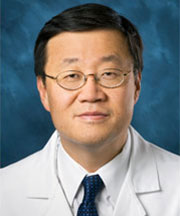
Dr. John S. Yu is a member of the full-time faculty in the Department of Neurosurgery at Cedars-Sinai Medical Center as well as the founder of ImmunoCellular Therapeutics. An internationally renowned neurosurgeon, Dr. Yu’s clinical focus is on the treatment of malignant and benign brain and spinal tumors. In addition, he is conducting in-depth research in immune and gene therapy for brain tumors. He has also extensively studied the use of neural stem cells as delivery vehicles for brain cancers and neurodegenerative diseases. Dr. Yu was inducted into Castle and Connelly’s America’s Top Doctors in 2005 and has published articles in a number of prestigious journals, including The Lancet, Cancer Research, Cancer Gene Therapy, Human Gene Therapy, Journal of Neuroimmunology, Journal of Neurological Science and Journal of Neurosurgery. Dr. Yu earned his bachelor’s degree in French literature and biological sciences from Stanford University and spent a year at the Sorbonne in Paris studying French literature while pursuing a fellowship in immunology at the Institut Pasteur in Paris. He earned his medical degree from Harvard Medical School and master’s degree from the Harvard University’s Department of Genetics. He completed his neurosurgical residency at Massachusetts General Hospital (MGH) in Boston. In addition, he was a Neuroscience Fellow at the National Institutes of Mental Health in the Neuroimmunology Unit at MGH from 1988 to 1989 and was a Culpepper Scholar in the hospital’s Molecular Neurogenetics Unit from 1993 to 1995. Dr. Yu’s other honors include the Preuss Award, Joint Section on Tumors, American Association of Neurological Surgeons and Congress of Neurologic Surgeons in 1995. He received the Academy Award from the American Academy of Neurological Surgery at its 1996 annual meeting. Other honors include the Young Investigator Award from the Congress of Neurological Surgeons in 2000, the National Brain Tumor Foundation Grant in 2001, and the Mahaley Clinical Research award from the American Association of Neurological Surgeons in 2005.
Katrin Amunts
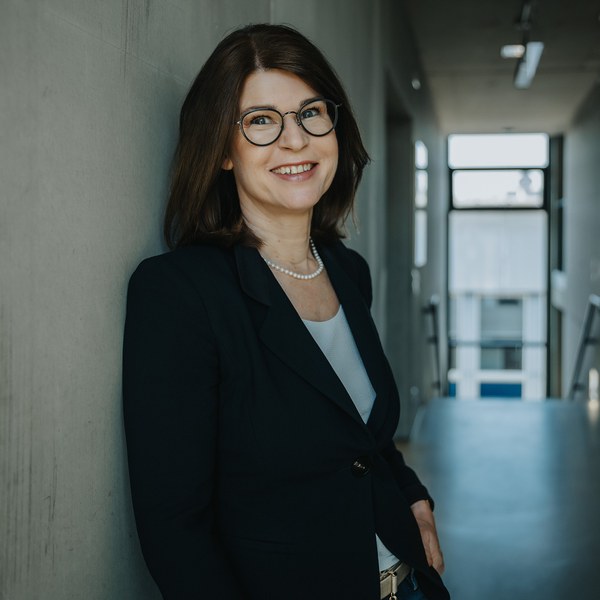
Prof. Dr. med. Katrin Amunts did a postdoctoral fellowship at the C. & O. Vogt Institute of Brain Research at Duesseldorf University, Germany. In 1999, she set up a new research unit for Brain Mapping at the Research Center Juelich, Germany. In 2004, she became professor for Structural-Functional Brain Mapping, and in 2008 full professor at the Department of Psychiatry, Psychotherapy and Psychosomatics at the RWTH Aachen University as well as director of the Institute of Neuroscience and Medicine (INM-1) at the Research Center Juelich. Since 2013, she accepted an offer to a full professor for Brain Research and director of the C. and O. Vogt Institute of Brain Research, University Hospital, Heinrich-Heine University Duesseldorf. Since 2016, Katrin Amunts is Scientific Research Director and Chair of the Science and Infrastructure Board (SIB) of the Human Brain Project (HBP), a European Flagship Project. She is active part of the International Brain Initiative, and a member of the several international boards. Since 2017 Katrin Amunts is co-speaker of the graduate school Max-Planck School of Cognition. Katrin Amunts is member of the German Ethics Council since 2012, and has been elected as vice chair in 2016. In order to better understand the organizational principles of the human brain, she and her team are developing a multi-level and multi-scale atlas of the human brain, and use methods of high-performance computing to generate ultra-high resolution human brain models such as the BigBrain.
Vasileios K. Katsaros
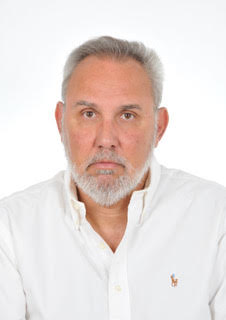
Senior Consultant Radiologist – Neuroradiologist, Director in the MRI Department of the General Anti-Cancer and Oncological Hospital of Athens “Agios Savvas” and Clinical Research Affiliate in the Departments of Neurosurgery and Neurology of the National and Kapodistrian University of Athens, Greece. He is also Clinical and Research Affiliate in the Departments of Neuroradiology, University Clinic of Τübingen (UKT), Germany and University College of London (UCL), UK. He completed his Neuroradiology fellowship in Albert-Ludwigs University in Freiburg, Germany in 1995. He has more than 30 years’ experience in clinical imaging of brain diseases, with a special focus on advanced MRI of brain tumors (more than 1500 cases performed) and the integration of the multi-modal MRI and fMRI (task-based, as well as Resting-State)-DTI brain mapping (gross-total excisions), Perfusion DSC-T2*-MRI and Spectroscopy (guiding targeted biopsies) in neuronavigational systems for imaging-guided neurosurgery and participates (together with the 1st Department of Neurosurgery of the University of Athens, Prof. G. Stranjalis and Imagilys, Brussels, Belgium using BrainMagix (CE marked) post-processing software platform) in the International DTI Challenge Project for Neurosurgical Planning (Brigham and Women’s Hospital, Harvard Medical School, MA, USA). He is also co-founder of the Hellenic Neuro-Oncological Group (HENOG-2015-http://neurooncology.gr), Medical Advisor and Consultant at IQBMI (www.iqbmi.com-2020), and National Representative as well as principal member of the Management Committee in COST GliMR2.0 Action of European Union (CA 18206 – September 2019 till September 2023). He holds the European Qualification in Neuroradiology (EQNR), as senior neuroradiologist, endorsed by the European Society of Neuroradiology since 2007 and is a full member of European Society of Radiology (ESR-1995), Radiological Society of North America (RSNA-2000), European Society of Neuroradiology (ESNR-2006), the American Society of Functional Neuroradiology (ASFNR-2013), the International Society of RadioSurgery (ISRS-2020), the Society for Brain Mapping and Therapeutics (SBMT-2020) and Brain Mapping Foundation (BMF-2020).
Jonathan Sackier
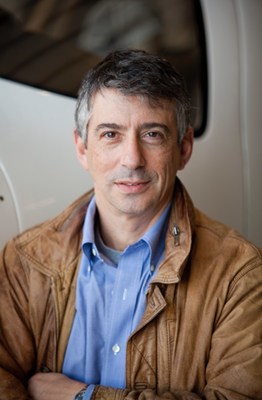
Dr. Sackier is a medical robotics maverick who played a key role in developing AESOP (Automated Endoscopic System for Optimal Positioning), which received FDA clearance in 1994 and became the first robot to assist in minimally invasive surgery. He contributed to AESOP’s design with a focus on clinical user interface, as well as trials and launch, and performed the first procedures with the system. In 2003, the company behind AESOP, Computer Motion, merged with Intuitive Surgical (ISRG) and developed the Da Vinci Surgical System. Dr. Sackier helped lead the minimally invasive surgery revolution, and as a Professor at George Washington University in Washington, DC he both founded and helped fund the Washington Institute of Surgical Endoscopy (WISE). He has advised and collaborated with leading family office-owned and publicly-listed multi-national companies including Cook Medical, Karl Storz, Applied Medical, Pall Medical, Merck, Novartis, and Pfizer, and served on the Board of the American College of Surgeons Foundation, the Larry King Cardiac Foundation, Adenosine Therapeutics, and Hemoshear.
Harry Kloor
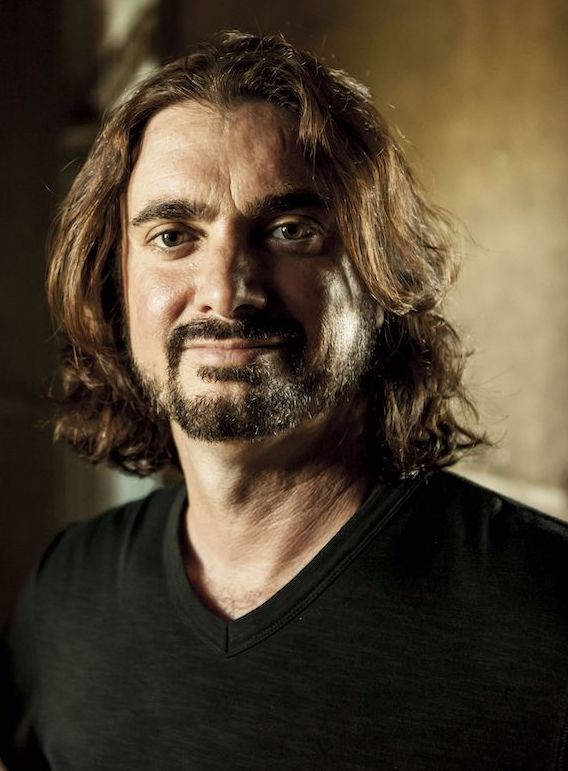
Dr. Harry Kloor is a successful serial entrepreneur, scientist, technologist, educator, policy advisor, author, and Hollywood filmmaker. He is the CEO and Co-Founder of Beyond Imagination; a company that has developed a suite of exponential technology solutions that deploys AI, AR, Robotics, Machine Learning and human-computer interaction technology to enhance and revolutionize the world’s workforce. Dr. Kloor has received numerous awards, most recently The Golden Axon Award from the Society for Brain Mapping & Therapeutics; most notable from the past, he was named ABC World News: Person of the Week honor in 1994. He worked as advisor for NASA, US SENATE, JPL, and numerous other science organizations. According to the US Council of Graduate Schools, Dr. Kloor is the only person in world history to earn two Ph.D.s simultaneously. His degrees are in Physics and Chemistry and were earned in 1994 from Purdue University. Dr. Kloor is a martial arts expert with 45 years of experience and numerous black belt degrees. Dr. Kloor was one of the five founding team members of XPRIZE and served at its CSO until 2005. He was on the founding team of Singularity University and taught at Singularity’s first summer program. In 2016 he created the ten million dollar Avatar XPRIZE, and in 2018 he co-created the Carbon Extraction Xprize with Jeff Holden and Jon Vein. Elon Musk funded this 100 Million plus prize purse in 2021. Dr. Kloor has worked with a large number of scientific organizations, universities, and companies to advance exponential technologies ranging from robotics, holographic capture, virtual and augmented reality, artificial intelligence, deep machine learning, sensor networks, IoT, volumetric capture, haptics, holography, etc. Dr. Kloor recently exited from Stem CC, a company he co-founded. In 2019, based on this work, the Word Economic Forum named Robotic Avatars as one of the top ten emerging technologies, in the same year Dr. Kloor chaired the Robotic sessions at AI for Good UN hosted conference in Geneva. 2020 WEF invited Dr. Kloor to speak on the economic impact Robotic Avatars will have in the coming decade. Dr. Kloor co-founded Rocket Racing League with Peter Diamandis and Bob Hariri. Dr. Kloor is also a professional filmmaker, with over 25 years of experience working in Hollywood. He has produced, written, and directed science fiction films and television series in Hollywood, starting with Star Trek: Voyager and the series and co-created the series Earth: Final Conflict. In 2007-2009, Dr. Kloor helped launch Taiwan’s animation industry by bringing his NASA/JPL Quantum Quest (QQ) film production to Taiwan. This marked the first big animation film ever animated in Taiwan. This film was designed to educate and inspire kids about the Cassini-Huygens space mission and science in general. This is the only film that Neil Armstrong participated in his life. He is currently developing a range of science fiction TV and film projects for Hideaway films, and working on several TV projects with famed showrunner Tim Kring (Heroes). Prior to Beyond Imagination, Dr. Kloor was the founder of Stem CC Inc.– a stem cell company that was sold in 2018 to Celularity, one of the world’s most cutting edge clinical-stage cell therapeutics companies (founded by Peter Diamandis and Bob Harari). Dr. Kloor also sits on the board of Brain Mapping and Therapeutics Society, and serves as their Chief Scientific Advisor and Educational Outreach Coordinator.
Thomas Williams
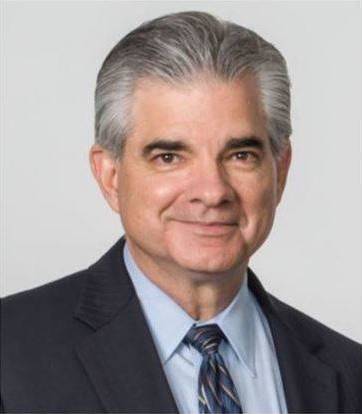
Element Scientist for HFBP. Affiliated with NASA Johnson Space Center (JSC) since 2015, Tom directs a multi-disciplined team of scientists focused on human factors in the areas of habitability, mission processes and tasks, human automation robotic interactions, dynamic loads, and training; as well as spaceflight risks related to behavioral medicine, sleep and fatigue, and team performance. The task of this research team is to mitigate critical risks to human health and performance on long-duration space expeditions. Tom ensures human research also focuses on the development of protective countermeasures to enable humans to live and work safely and effectively in space. Tom holds a Ph.D. in clinical psychology from Saint Louis University and master’s degrees in community/clinical psychology from Truman State University, and strategic studies from the U.S. Army War College. Prior to becoming Element Scientist for HFBP, Tom directed the Behavioral Health and Performance Laboratory at JSC and contributed to leadership development and resiliency programs for the U.S. Army, the Coast Guard, and the Air War College.
